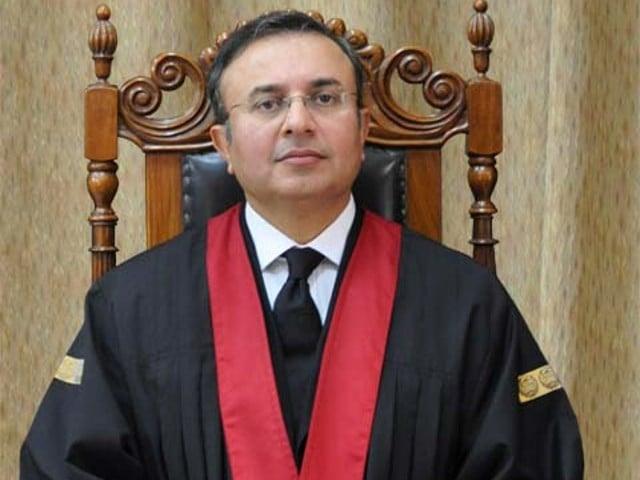Islamabad:
The judges of the Supreme Court are not passive interpreters of the text, they are rather the guardians of freedom, equality and institutional independence.
“”[The Supreme Court] is the ultimate guardian of fundamental rights and the final sentry against executive or legislative surpassing, “said a 15 -page judgment written by judge Syed Mansoor Ali Shah and approved by judge Aqeel Ahmad Abbasi, who is also a member of the constitutional bench.
According to the verdict, the judges SC must act with integrity and courage, to resist all the encroachments, external or internal, which threaten to erode the autonomy of the judiciary or to overthrow the rule of law.
“Judges should not be practical at the attraction of short -term advantages, whether it is elevation, power or personal comfort which can accumulate if they speak the language of authority rather than that of the Constitution. Such advantages are illusory and transient.
“The real reward of a judge lies in the preservation of the dignity of the institution and the confidence of the people. It is also the solemn duty of the judges of this court to call, with moral clarity and institutional courage, those among their ranks which go to the power of the day at the cost of constitutional principles.
“The criticism of the interior, when it is rooted in loyalty to the constitution, is not disloyalty, it is the highest form of service to the judicial institution,” added the verdict.
The division bench led by judge Shah rejected a petition filed by the Federal Commission of the Public Service which rejected the new appointment of a functional person to the post of assistant professor (obstetrics and gynecology) simply because she changed her home after marriage.
Stressing the “real role” of the Supreme Court and its judges in the last two pages of decision, judge Shah noted that history is a vigilant witness who does not remember those who welcome power, but those who are resolved in defense of the principle.
“The jurisprudential inheritance of a judge is not built on appeasement but on principles of principle when the soul of justice is in danger. The courts should never become tools of opportunity.
Judge Shah said history did not abstain the judges who abandon their constitutional duty; It will remember that they not as distributors of justice, but as collaborators in injustice.
He noted that the Supreme Court is not just a forum to resolve disputes; It is the constitutional consciousness of the nation, responsible for producing progressive and principle jurisprudence which instills life in the constitution and poses the distance between the law and the lived realities of the people.
“The court must remain alive for the evolutionary aspirations of society and innovate new appeals to advance justice,” said judgment.
The case
The court judged that a married woman retains the discretionary power, the choice or the agency to adopt the home of her husband or keep hers. In this case, the respondent, by his own will, chose to adopt the home of her husband, who is legally authorized.
“It is also important to note that the authorization of the change of domicile can also affect the transfer and seniority mechanism.
“The deactivation of seniority undermines bureaucratic impartiality, violates the constitutional guarantees of the regular procedure and equality (article 4 and 25 of the constitution of the Islamic Republic of Pakistan, 1973 and generates cynicism within the service. The erosion of the standards of seniority weakens administrative stability.
“Authorizing post-induction changes in the home not only would undermine the quota system, but also the avenues would open manipulations, allowing individuals to move provincial affiliation to a personal advantage, thus diluting the constitutional promise of provincial parity.
“The freezing of the domicile thus serves the broader constitutional objective of federal harmony and administrative equity within the structure of the public service of Pakistan,” he said.
The court noted that the assertion of the additional prosecutor that the change of domicile of the respondent would destabilize the structure of the public service would have been correct if the respondent remained in the same service structure. However, the “direct recruitment” of candidates being fiscalone implies new remuneration scales, separate terms and a distinct seniority list.




